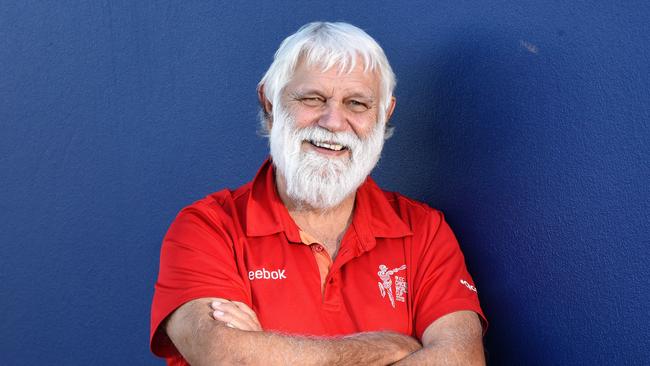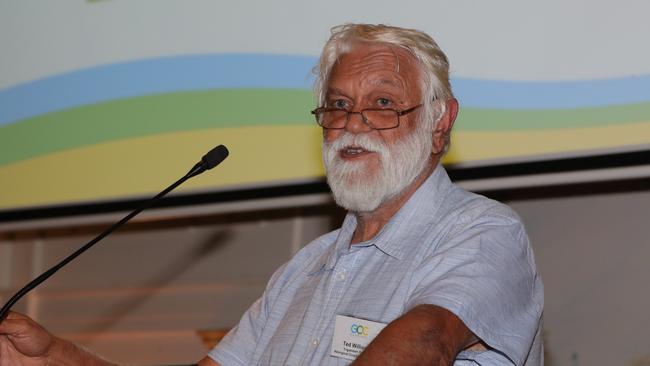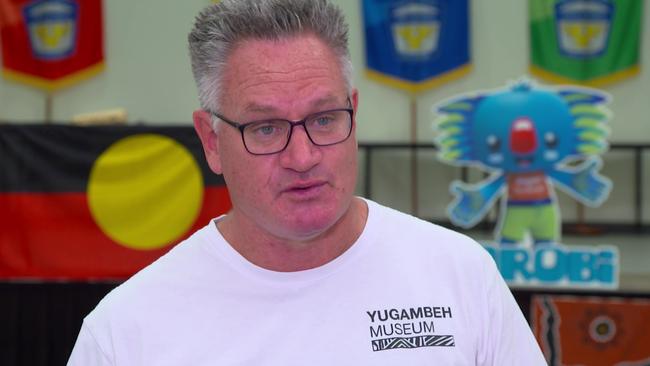2023 Voice to Parliament referendum: What Gold Coast’s Indigenous community think
Gold Coast Indigenous elders urge those undecided about the proposed Voice to Parliament not to fear its impact, with figurehead Ted Williams declaring: “The world will not fall apart.”
News
Don't miss out on the headlines from News. Followed categories will be added to My News.
GOLD Coast Indigenous elders urge those undecided about the proposed Voice to Parliament not to fear its impact, with figurehead Ted Williams declaring: “The world will not fall apart.”
Australians will go to the polls in either October or November to vote on recognising Aboriginal and Torres Strait Islanders in the constitution via creation of a permanent advisory body.
This body, to be known as the Aboriginal and Torres Strait Islander Voice will advise parliament and the federal government on issues specifically relating to Indigenous people.
Community and political leaders are split over the issue but Gold Coast Indigenous leaders are backing the proposal and have urged others to get on board.

Yugambeh elder Ted Williams said he was “totally in favour” of the Voice and urged the community to get behind the proposal.
Mr Williams - who famously travelled to London and met the late Queen Elizabeth II at the Queen’s Baton launch ahead of the Gold Coast’s 2018 Commonwealth Games - was asked for his message for those who were undecided on the Voice: “My belief is that there is nothing to worry about with a yes vote getting up.
He added: “The world will not fall apart.”
The respected Gold Coast elder later performed the welcome to country at the 2018 Games opening ceremony where he also met the now King Charles III.
“It is a worthwhile initiative and enshrining it in the constitution allows the Voice to be useful, hopefully forever and a day,” he said.

“It is a group which would give advice to the government, and it would not be the first to be asked to do this because since 1972 we have had advisory groups.
“The major difference is that (by being enshrined in the constitution) it will not be able to be cast aside by a government at their whim.
“This doesn’t give it power but it will mean that governments cannot get rid of it if they don’t like the advice they are given.”
Mr Williams pointed to previous advisory bodies such as the Aboriginal and Torres Strait Islander Commission (ATSIC) set up by the Hawke Labor government in 1990 and abolished by the Howard Coalition government in 2004.
While he agreed that ATSIC’s administration “could have been found to be wanting”, he argued that its basic structure and role was sound.
There is broad support for the constitutional change, which forms part of the Uluru Statement from the Heart, an invite from First Nations people to the rest of Australia.
A study conducted in January by global market research firm IPSOS found more than 80 per cent of Indigenous people surveyed were in support of the voice.
A Newspoll conducted for News Corp in between February 1 and April surveyed 4756 people finding 54 per cent of all Australians supported constitutional recognition and a voice to parliament, with 38 per cent opposed.
It also found there was majority support of votes in all states except Queensland.
The states with the strongest level of support included South Australia, Victoria and NSW.
Queensland voters recorded 49 per cent in favour.
The Newspoll also found more than two thirds of people aged 18-34 were in favour Australia wide, along with 58 per cent of those aged 35-49.
A majority of voters over the age of 65 – 54 per cent – were against.

Yugambeh traditional owner Rory O’Connor was part of the 2018 Commonwealth Games working committee and assisted with the formation of the elders group which gave advice to GOLDOC, the event’s organising company.
He said the Voice would “help make better policy, save money and create a better Australia”.
“I am very much for the Voice and if you look back through history the problem with policymaking from Canberra is a lack of connection with Aboriginal communities, both urban and remote,” he said.
“On a local level, as a result of direct contact with our Aboriginal community, GOLDOC was able to adjust what it delivered as the final product to be inclusive, to assist the indigenous community and create a better experience for everyone involved.
“The Tent Embassy in Canberra was an early and rustic attempt to solve this problem and in its own way effective however it could only have limited impact.”
“ATSIC gave a voice to policymakers from Indigenous people around the country and in this way, it was effective but was brought down by the government which blamed faulty players within it, which is unfortunate.
“I liken it to shutting down the NSW parliament because a few MPs are found to be corrupt.”





